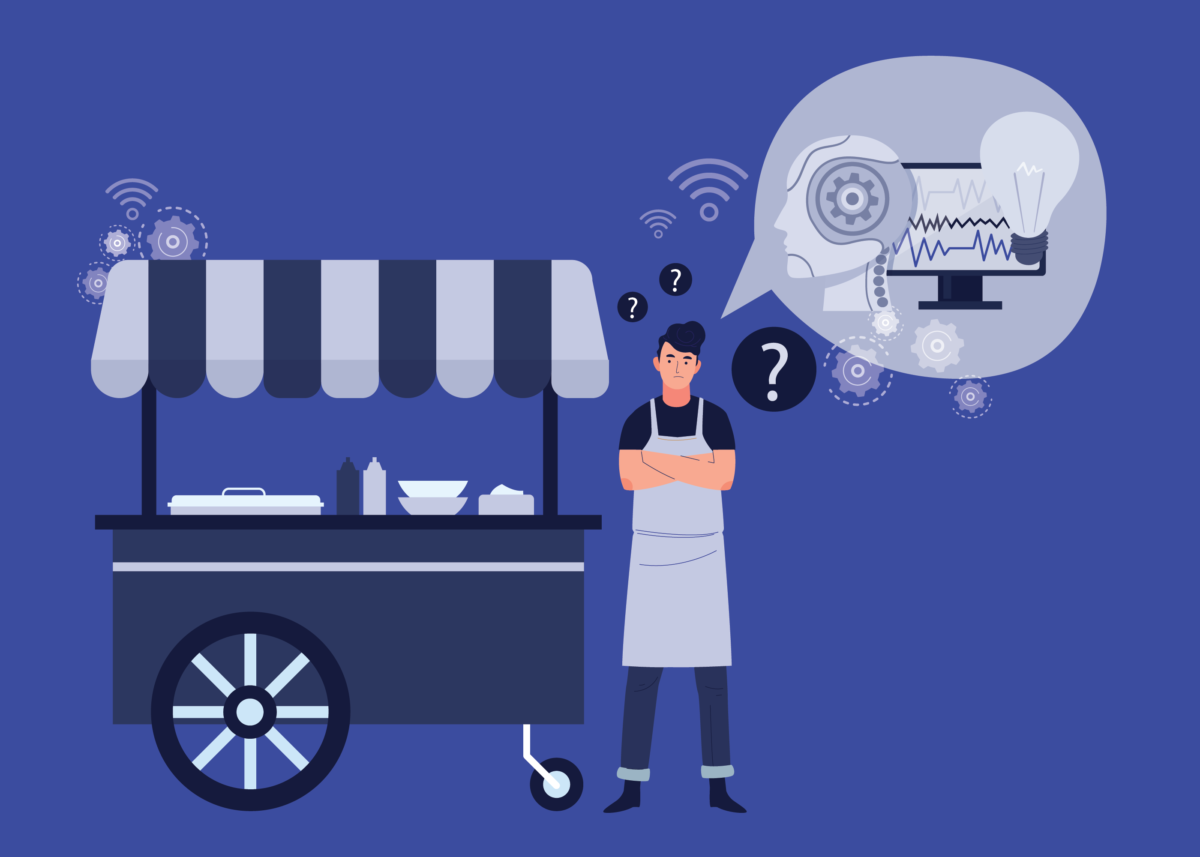Should Small Businesses be Opting for AI?

INTRODUCTION
Artificial intelligence (AI) was invented to support human beings in multiple ways. With time, it has developed into a technology that delivers across multiple spectrums. AI has become more competitive for small businesses, considering its initial high cost. AI is currently well-regulated, and it is assisting many companies around the world in their development. It has progressed over time, and the best thing is that even small companies are becoming familiar with it.
What is a small business?
A small business /enterprise runs on a small scale and needs fewer capital resources, less manpower, and fewer machines to run. Small-scale enterprises, also known as small businesses, are those that manufacture products and services on a limited scale.
Small-business founders, too, are creative when it comes to introducing new ideas and plans that aim to keep their company ahead of their competition. When it comes to artificial intelligence, small companies are eager to discover the opportunity and incorporate it into their operations to build a strong brand presence in the marketplace. These strategies and the right implementation help them in keeping up with the competition in the market.
Pros and Cons of AI for small businesses
- PROS
1. Real-Time Analysis
Data processing is one of the most significant aspects that can determine how an organization works. The amount of data available to businesses today is overwhelming. It might take days to collect and review all of this data. Businesses will, in the meantime, need the outcomes to make urgent and strategic decisions.
AI assists in the real-time collection of massive volumes of data and provides high-quality research when the company requires it most. The ability to make timely decisions based on the right analysis will assist in keeping the business ahead of the competition.
2. Enhanced Customer Experience
Many small businesses rely on daily customer contact to produce sales. As a result, they are required to invest a considerable amount of money on salaries for employees and staff who provide round-the-clock assistance.
AI relieves a significant burden from these employees’ shoulders through AI chatbots. They can engage with customers and address difficult challenges while simultaneously putting less pressure on IT infrastructure to support and run a massive contact center, resulting in a more streamlined consumer experience.
3. Cost Management
With all of the benefits mentioned above, it’s easy to see how much money AI can help the company save while lowering costs. Automation isn’t simply a way to eliminate redundant activities, but it also helps companies to give employees more flexibility to focus on more challenging tasks.
AI will also assist in tracking the work process 24 hours a day, seven days a week while capturing relevant data for review. It can also provide reminders about any daily system repairs and upgrades to prevent breakdowns and downtime.
4. Data Security
The fewer people who have access to confidential data, the safer it is, and AI can help with security. It can spot attempts at theft. Even though AI software can have certain bugs, it may have extra security protections to avoid a data breach in the long run.
5. Predictive Analytics
The opportunity to make intelligent assumptions about the progress of a project or the state of the economy is indispensable. AI is capable of processing and analyzing a wide range of data, enabling it to conduct high-quality predictive analysis.
AI is good at self-learning. It may learn to recognize key points in data and draw reasonable and accurate conclusions. This research will assist company leaders in making the right decisions possible to achieve a strategic edge in their market.
- CONS
1. Exorbitant Pricing
Custom-built AI applications tend to be expensive. Despite the strong return on investment, small enterprises are always reluctant to make such a big investment. A small enterprise, for example, may have a hard time finding funds to integrate AI into the work operation.
2. Changing Business Processes
Another stumbling block to AI adoption would be the changing business practices. Regardless of the jobs that will be generated as a result of this process, the effect on your workforce is something you should plan for.
3. There is no such thing as a one-size-fits-all solution.
Currently, you must rely on individual solutions to complete such AI-powered marketing tasks. There are a plethora of intelligent marketing tools to choose from, ranging from using AI to optimize and personalize your content to an AI tool that helps optimize paid campaigns. However, since there is no one-size-fits-all solution, combining a variety of approaches can be difficult.
Conclusion
However keeping in mind the pros and cons yet several small businesses have been eager to welcome artificial intelligence’s power and improvements, and some have been more tentative. Regardless of their point of view, AI is here to remain and it’s the future. It may be already saving their time and money. It can make lives easier while also increasing the productivity and sustainability of both small-scale and large-scale companies.
